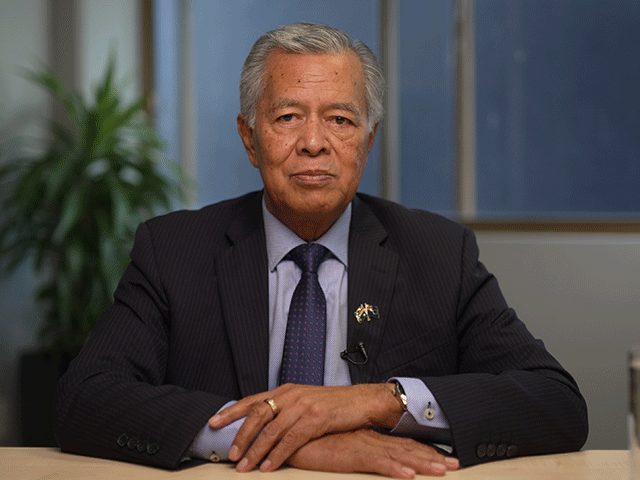Henry Puna
The Secretary General acts as Secretary to the Pacific Islands Forum and is responsible for the management of the Pacific Islands Forum Secretariat.
On this page

Mr Henry Puna is the 10th Secretary General of the Pacific Islands Forum.
He is the first Cook Islander to hold this post.
The Pacific Islands Forum Secretary General is responsible, in close consultation with the Forum Chair and within the limits set by the Forum Leaders from time to time, for setting Forum Leaders’ Meeting agendas and coordinating responses by members to regional events, particularly crises. The Secretary General also performs several other key functions which include being the Pacific Ocean Commissioner. As the Pacific Ocean Commissioner, the Secretary General advocates for the secure future of Pacific people based on the sustainable development, management and conservation of the Pacific Ocean and its resources.
Prior to taking up the regional role on May 24th, 2021, Secretary General Puna was Prime Minister of the Cook Islands, from November 2010 until October 2020.
Born in Aitutaki in 1949 and raised in Rarotonga, he spent his formative years witnessing the transition to self-governance for his nation. He was one of the first wave of Cook Islands solicitors, starting at Auckland University then the University of Tasmania, obtaining a Bachelor of Laws degree in 1979. He is an alumnus of Australia National University in Canberra and was admitted to the bar in September 1980.
Secretary General Puna’s formative years combined with his return to atoll life as a pearl farmer and parliamentarian, supplied rich insights and lived knowledge of the resilience and resourcefulness of small island communities bearing the brunt of climate change across the Blue Pacific.
Holding portfolios including Foreign Affairs and Immigration, Marine Resources, Energy and Renewable Energy, Climate Change, Tourism, and the Outer Islands, Puna steered his nation on a path which has earned the Cook Islands global recognition for Oceans sustainability and renewable energy.
As the Cook Islands Foreign Affairs Minister and Leader, he pursued a more vigorous level of international diplomacy for the Cook Islands, extending foreign relations and formal ties to more than 50 nations including the People’s Republic of China, Japan, South Korea, Indonesia, Malaysia, Thailand, Brunei, and Singapore.
Before politics, between 1989 and 1996, Mr Puna served on the board of the South Pacific Ports Association, and the Pacific Forum Line. His executive roles in national government heading Trade, Labour and Transport as well as operating within the constraints facing regional shipping and transportation strengthened his affinity for the hardships and vulnerabilities of connecting remote atoll-based communities across ocean states.
A key focus in his early years as Prime Minister was transforming access to energy across all inhabited islands of the Cooks. His championing of renewable, clean energy and support ensured the bilateral and global funding partnerships for a successful transition to solar energy, breaking the monopoly of fossil fuel.
At the international level, as the 43rd Forum Chair and host of the 2012 meetings and Leaders Retreat, he invited former US Secretary of State Hilary Clinton to a milestone meeting with Forum Leaders, who renewed their commitment to address human rights for women, through a new Pacific Leaders Gender Equality Declaration.
In 2016, in recognition of his service to the region and academia, he received an honorary Doctorate in Law from the University of the South Pacific, Fiji, and served as Chancellor of the University from 2017-2018.
As a Forum Leader championing climate change, tuna fisheries, and innovative partnerships for oceans and energy sustainability, a landmark global achievement has been the 2017 founding legislation establishing the world’s largest multiple-use marine park, the Marae Moana.
Henry Puna is 73 in 2023, and an avid golfer and fisher. He is married to Cook Islands Member of Parliament for Manihiki, Akaiti Puna.